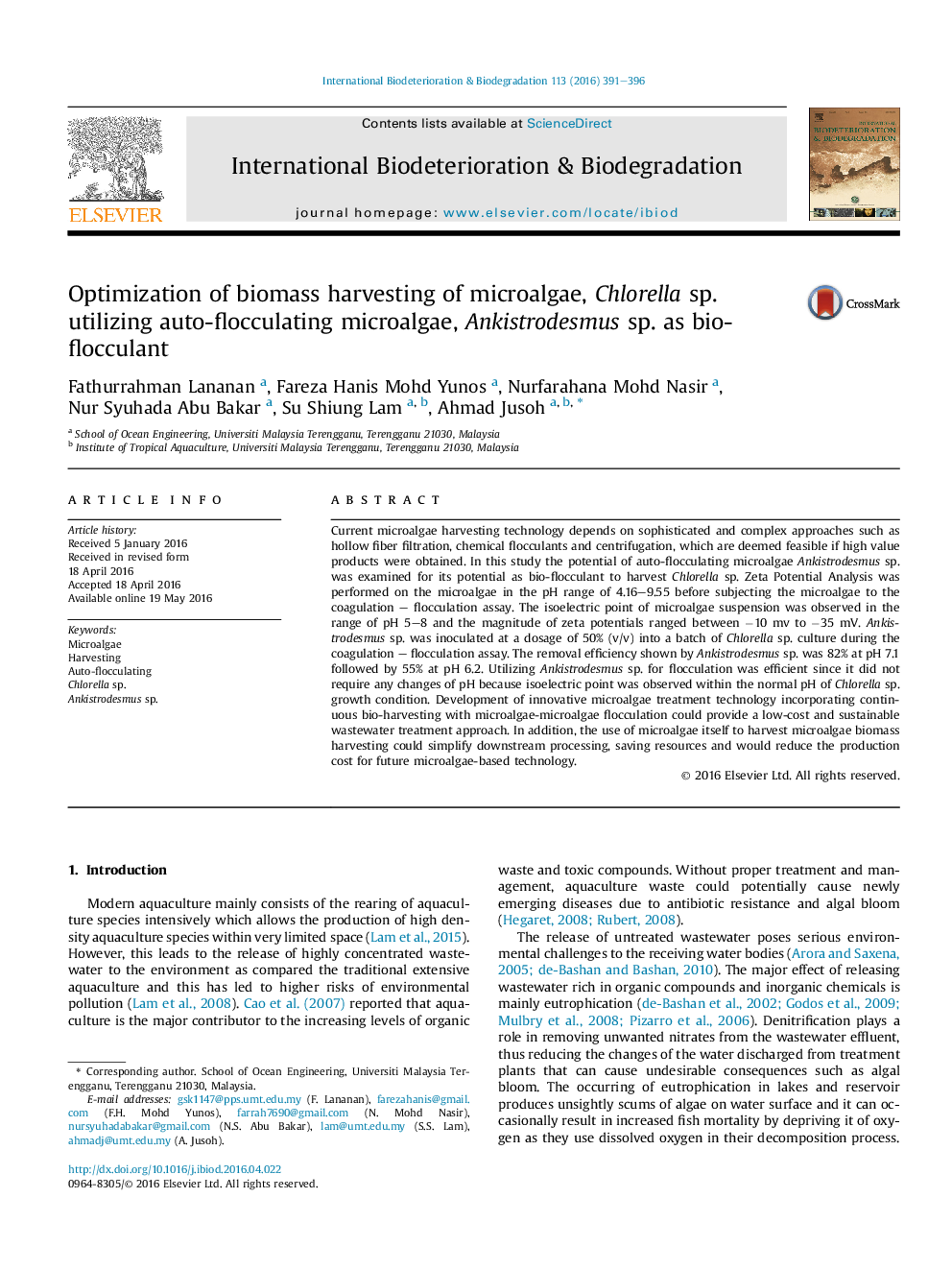| Article ID | Journal | Published Year | Pages | File Type |
|---|---|---|---|---|
| 4364112 | International Biodeterioration & Biodegradation | 2016 | 6 Pages |
•Bio-flocculant could serve as sustainable harvesting microalgae.•Determination zeta potential of Chlorella sp. and Ankistrodesmus sp. in range of pH 4.16–9.55.•Ankistrodesmus sp. was inoculated into Chlorella sp. at varies pH 6.1 – 7.1 for coagulation – flocculation assay.•Chlorella sp. and Ankistrodesmus sp. shows negatively and positively charged zeta potential at pH 6.1–7.1, respectively.•Optimum pH was obtained at pH 7.1 and produced the highest removal efficiency (82%) and biomass recovery of (78%).
Current microalgae harvesting technology depends on sophisticated and complex approaches such as hollow fiber filtration, chemical flocculants and centrifugation, which are deemed feasible if high value products were obtained. In this study the potential of auto-flocculating microalgae Ankistrodesmus sp. was examined for its potential as bio-flocculant to harvest Chlorella sp. Zeta Potential Analysis was performed on the microalgae in the pH range of 4.16–9.55 before subjecting the microalgae to the coagulation – flocculation assay. The isoelectric point of microalgae suspension was observed in the range of pH 5–8 and the magnitude of zeta potentials ranged between −10 mv to −35 mV. Ankistrodesmus sp. was inoculated at a dosage of 50% (v/v) into a batch of Chlorella sp. culture during the coagulation – flocculation assay. The removal efficiency shown by Ankistrodesmus sp. was 82% at pH 7.1 followed by 55% at pH 6.2. Utilizing Ankistrodesmus sp. for flocculation was efficient since it did not require any changes of pH because isoelectric point was observed within the normal pH of Chlorella sp. growth condition. Development of innovative microalgae treatment technology incorporating continuous bio-harvesting with microalgae-microalgae flocculation could provide a low-cost and sustainable wastewater treatment approach. In addition, the use of microalgae itself to harvest microalgae biomass harvesting could simplify downstream processing, saving resources and would reduce the production cost for future microalgae-based technology.
